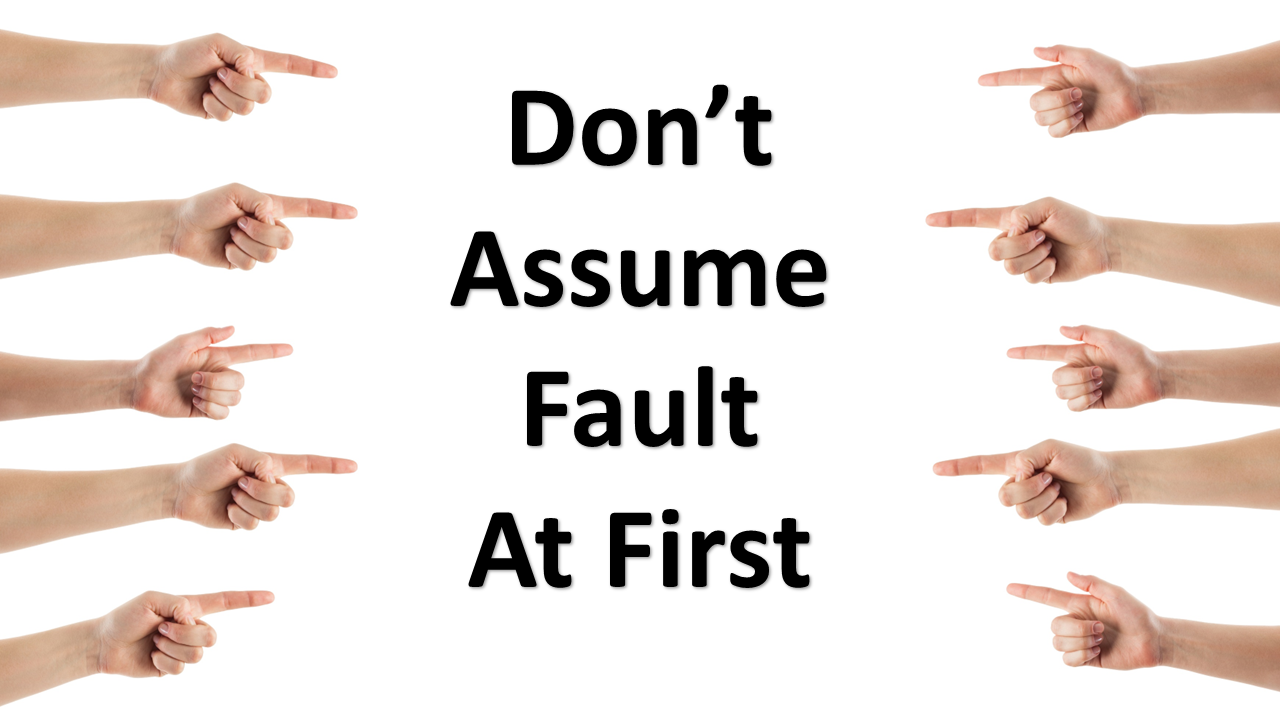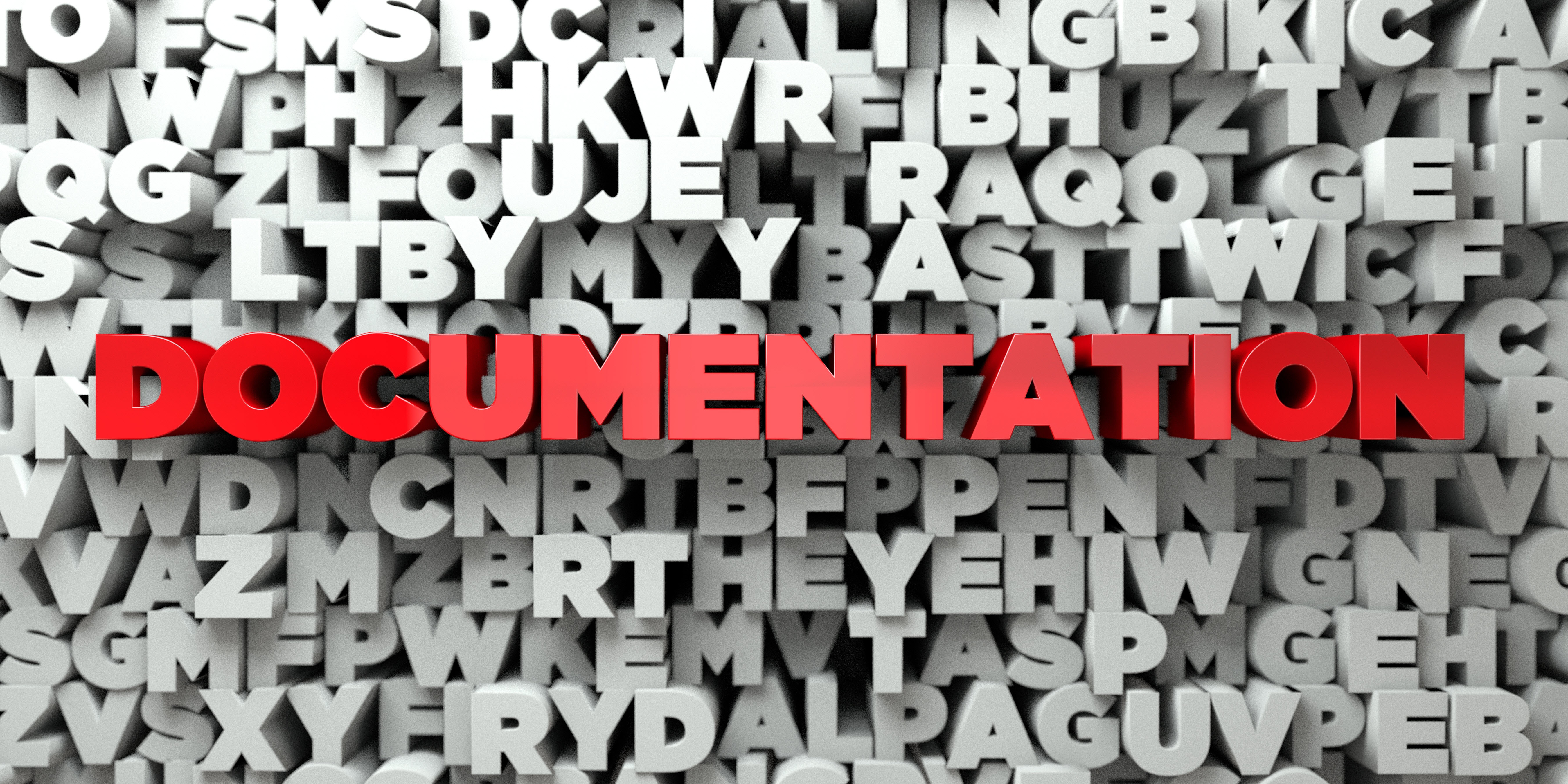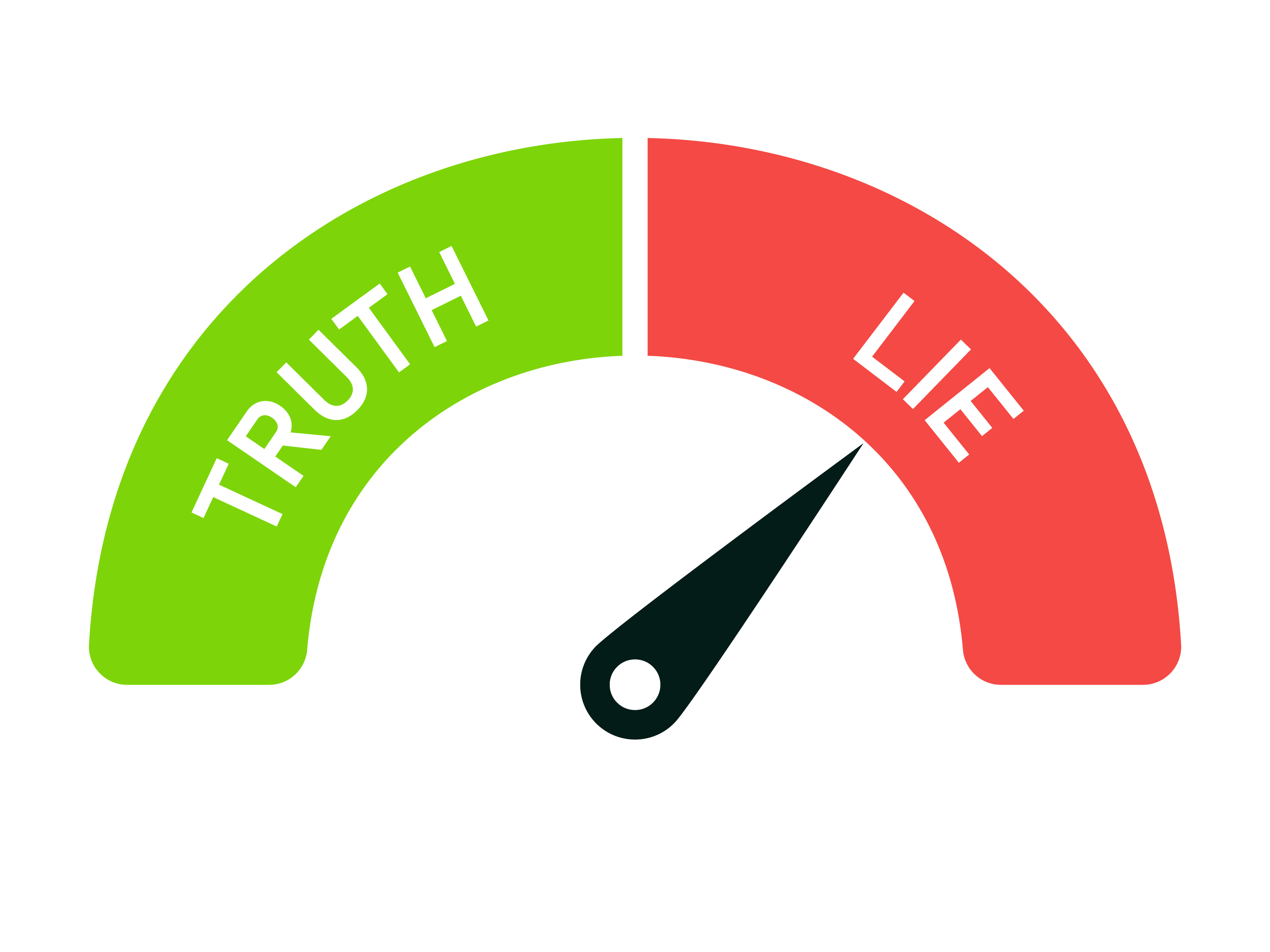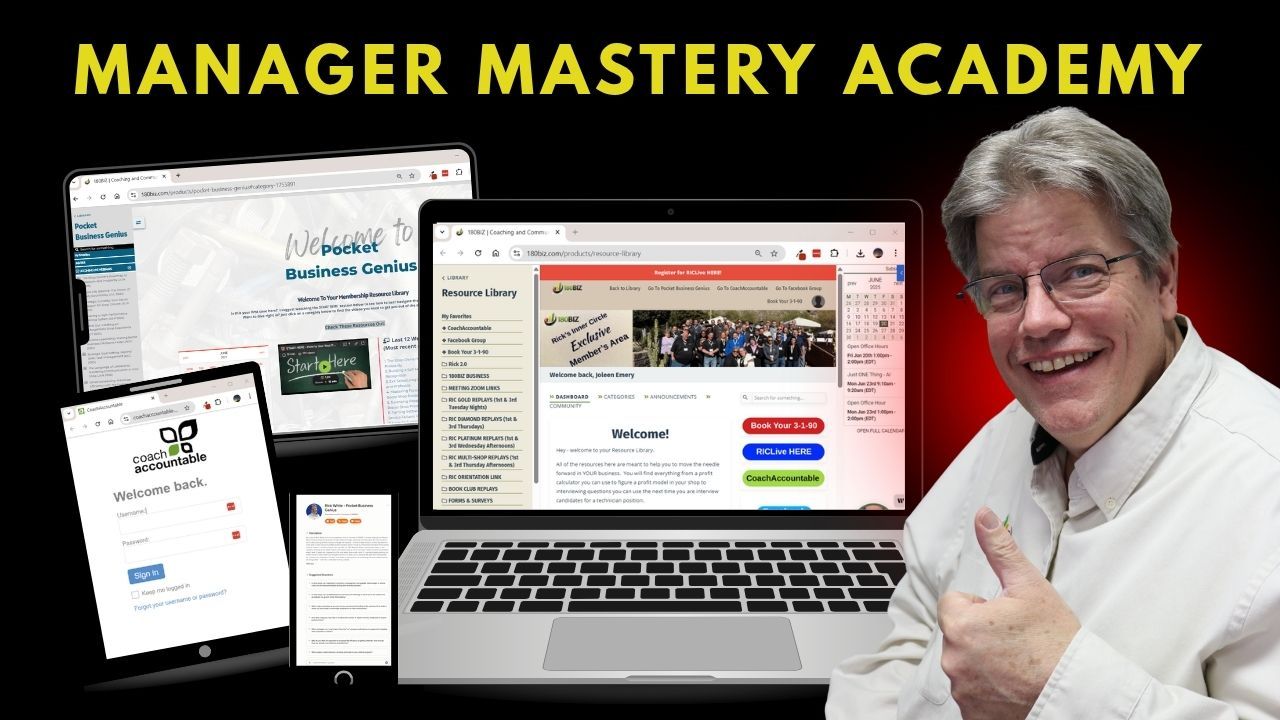Auto Repair Shop Owners Don't Immediately Accept Blame
Don't Immediately Accept Blame for a Comeback
by Rick White, President 180BIZ (Estimated Read Time 5 minutes)
I’m here to talk about comebacks. But more so I’ll talk about blame. When someone is walking in with a head of steam on, they're undoubtedly upset. They spend hard-earned money. They’re afraid of being taken advantage of and they're worried about the hassle of having to come back again and being without a vehicle again. They may be thinking, “Will this cost me more money?” They're expecting you to fight them on it so they're coming in pretty aggressive. One of the best things that you can do right now is not get upset and don't go for the ride. When someone's coming in hard and heavy on me, I tend to pull back a little bit and I used to give away the store just to keep them happy.
No Reaction from You is a Better Reaction!
A better reaction from you is to not react. Hear their frustration, but don’t react to it. You can do a kind of sidestep a little bit. But most of all, listen, empathize with them, and reassure them. That's really what they're looking for empathy and reassurance. Put yourself in their shoes for a minute. How would you feel? When was the last time you went through this, and you had this huge battle?
The worst thing you can do is accept the blame immediately. You don't know what's going on, so be careful here. Listen to them and then say, “Okay, we will at this to see what's going on. If it has anything to do with the work we just did, we will take care of you. We are here for you. I will push a car outside and get yours in right now because we want to take great care of you.” 
Now, I don't assume fault at the beginning. I will apologize for what they're going through, and I will reassure them. But I will not accept the blame right away. I will not accept blame until I know it was related to the work we did. Once I know it was something that we did, I will one hundred percent own it.
I won’t say my tech did this or my advisor did that. No, no, no, no. As a leader, you should deflect credit. So, when someone says, “Hey Rick, you did a great job.” I deflect credit by saying, “That was Sandy. She does a great job. Shannon does a great job. Brenda does a great job, Amber does a great job.” That's, what you do. You deflect the credit and you accept responsibility. You could say something like this. “I failed you. I'm sorry. We will make this right for you. I'm going to make this right for you.”
Ownership is key when it is your fault. But in the beginning with comebacks, don't accept blame right away. What happens if it doesn't have something to do with the work you did? What if it's just something that is on the outside of going wrong? I recently talked a client through this type of situation. He finished working on a diesel truck. Had it running great. The vehicle owner was driving it home and all of a sudden it started acting up. He was pushing the shop to own it. I kept telling my client, “Don't own it.” They discovered that on the way home from the shop, the diesel truck owner without even thinking stopped and put gasoline in his diesel truck. It caused all kinds of fuel system problems. The guy did own up to it.
So, the moral of the story is, don't accept blame right away. Just be there, listen, and reassure. That's the key here. Reassure them that you are there to take good care of them. You are the solution.
Now, how do you not accept blame? The easiest way to do it is with documentation. You must have excellent documentation of your client's concern. If you just write up a ticket and put “Check engine light,” then your client might mistakenly think the check engine light is the problem and it's not. It's a symptom. Document what is going on causing the check engine light to come on. Focus on what's happening. Don’t focus on the check engine light. The check engine light is an indicator. It is not the problem.
Have that conversation upfront with your client and then document what the concern is, wholly and completely. For example, “Check engine light comes on after 10 minutes of driving on the highway. No drivability issues.” That’s it. Document it. “The engine's running rough on acceleration. Document what the concern is and don't focus on the check engine light. That's the first problem we have when it comes to comebacks.

Document the concern wholly and completely.
We don’t document the right stuff. Be sure to document properly. If someone comes back six months later and says, “You fixed my check engine light four months ago and it's on again.” Remember, that's an indicator. It's not the problem. If you document it properly, you can show a difference in the symptoms. Maybe the first time it was running great, and it didn't have a problem. Now it's running rough. That’s two separate issues. We can take the “comeback” thing right off the table. So, documentation is super important.
And then the last thing I want to talk about is being super clear in your communication. What do I mean by that? Make sure that what you think you are selling is what the client thinks they're buying. That is so important and it saves a lot of headaches. While communication is important, it is your documentation that will inevitably save your bacon.
If it isn’t written down, it’s a lie.
Document. Because if it isn't written down, it's a lie. So, step aside from the emotions, be there to feel what they're going through, know how frustrated they are, empathize with that, and reassure them that you are the one to help them. Do not accept blame right away. Communicate and document your butt off and make sure that everyone's happy with what's going on.
Take care. God bless. Stay safe, have fun, and go make some money.

Want to learn more about transforming your business? CLICK HERE to get advice you can use to improve your shop, the day it lands in your inbox.
Want to learn more about transforming your business?
Join my mailing list to get advice you can use to improve your shop, the day it lands in your inbox.
Don't worry, your information will not be shared.
We hate SPAM. We will never sell your information, for any reason.






